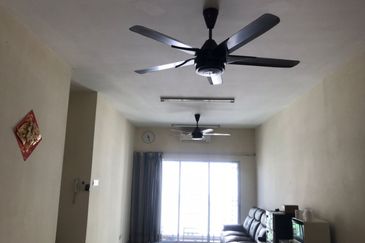KUALA LUMPUR: The latest measures announced by Bank Negara Malaysia (BNM) to rein in household indebtedness are seen as necessary to promote a sound and sustainable household sector.
"These measures will affect business [of banks and non-bank lenders] to a certain extent but it has to be done. Demand consumption has been strong but a lot of it has been fuelled by credit and at some time, the sector has to deleverage to ensure that it doesn't become a risk to the financial system," said Linda Koh, an analyst at independent research house InsiderAsia.
Last Friday, the central bank announced with immediate effect measures aimed at avoiding excessive household indebtedness and reinforcing responsible lending practices by key credit providers.
The measures are imposing a maximum tenure of 10 years for the repayment of personal loans and maximum of 35 years for property loans, and prohibiting the offering of pre-approved personal financing products.
In addition to the latest measures, BNM said key credit providers are required to observe prudent debt service ratios in their credit assessment to ensure households have sufficient buffers to protect them against rising costs and unexpected adverse events.
These measures are issued pursuant to section 31(1)(a) of the Central Bank of Malaysia Act 2009 (CBA) and apply to all financial institutions regulated by BNM, credit cooperatives regulated by the Malaysia Cooperative Societies Commission (SKM), Malaysia Building Society Bhd (MBSB) and Aeon Credit Service (M) Bhd.
BNM governor Tan Sri Dr Zeti Akthar Aziz said during a media briefing last Friday that Malaysia's ratio of household debt to GDP is the highest in Asia among emerging economies at 82.9% in the first quarter of 2013, rising from 70% in 2009.
From 2008 to 2012, Malaysia's household debt grew at an average of 12.5% per annum.
"Household indebtedness is on the increase. It's not at alarming levels yet but based on current trends, it will be," Zeti said.
Koh noted that the retail sector could also see some pull back as consumer spending will be crimped.
"[The central bank] is not taking the punch bowl away, it's just reducing the alcoholic content to reduce the hangover.
"The measures are necessary because a lot of people are living beyond their means and it's not sustainable. At 83%, it's very near the point of deleveraging. A gradual pullback is always better," she said.
CIMB Research economist Lee Heng Guie said in a note that unsustainable debt levels in countries that experience property booms and busts or credit and property expansions become problematic during an economic crisis.
"With a view to reducing the vulnerability of households and the financial system, the measures for prudent personal financing and mortgage lending practices are imperative to promote a sound and sustainable household sector," he said.
Zeti said the latest move by BNM is aimed at the household sector to ensure it remains sustainable over the medium term and continues to contribute positively to the economy.
She said with the economy growing at between 4% and 6%, the current level of indebtedness and its rapid growth are not sustainable.
BNM's new measures also bring some of the lending practices at development financial institutions (DFIs) and non-bank financial institutions (NBFIs) in line with those of conventional banks.
Zeti said while NBFIs, such as the cooperatives, are governed by SKM, the central bank can introduce measures should the credit they provide potentially result in financial instability.
She said the measures were approved by the Financial Stability Executive Committee, whose members comprise representatives from the Securities Commission Malaysia, the ministry of finance, Malaysia Deposit Insurance Corp and SKM.
Outstanding personal financing, offered by non-banks, including DFIs, as at March 2013 rose 28.8% compared with 9.1% for the banking system.
In 2012, lending by non-banks grew 30.6% compared with 9.1% for the banking system.
NBFIs such as MBSB have seen rapid loans growth in recent years. In its 2012 financial year (FY12), it recorded total net loans growth of 59.8% compared with 40% the year before.
Similarly, Aeon Credit which offers vehicle and personal financing, saw its financing receivables as at end-FY13 rise 58% to RM2.36 billion from RM1.49 billion the previous year.
This article first appeared in The Edge Financial Daily, on July 8, 2013.
TOP PICKS BY EDGEPROP

De Tropicana Condominium
Kuchai Lama, Kuala Lumpur

Bandar Kinrara
Bandar Kinrara Puchong, Selangor

OUG Parklane
Jalan Klang Lama (Old Klang Road), Kuala Lumpur

Kawasan Perusahaan Telok Mengkuang
Telok Panglima Garang, Selangor

The Park Sky Residence
Bukit Jalil, Kuala Lumpur
















hero.jpg?GPem8xdIFjEDnmfAHjnS.4wbzvW8BrWw)



